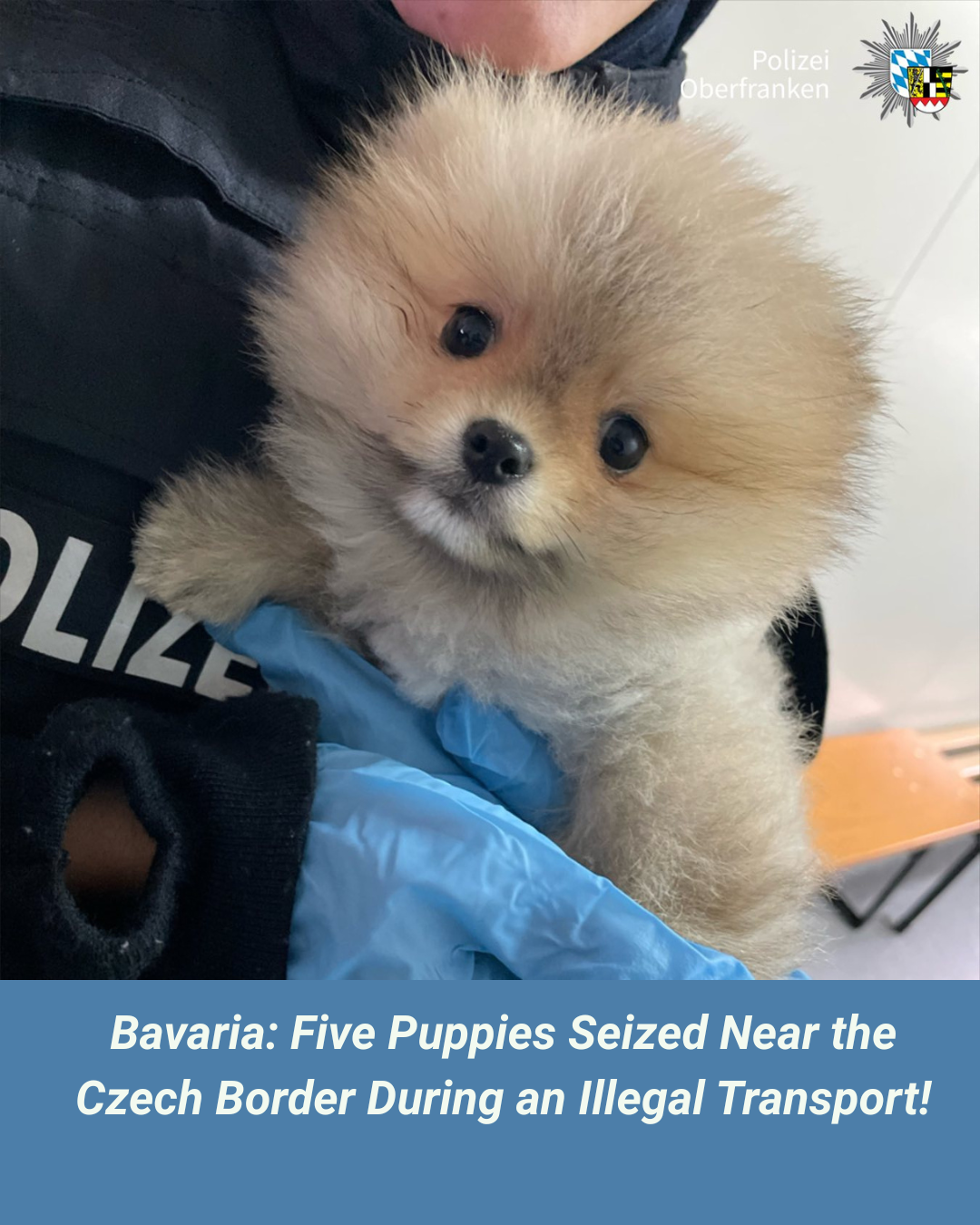During a border inspection near the town of Selb, officers from the Grenzpolizeiinspektion Selb (Bavarian Border Police) stopped a bus registered in Bulgaria.
When checking the luggage compartment, the officers discovered two transport boxes containing five puppies.
The 46-year-old driver presented pet passports, but the documents contained incomplete vaccination data. It was later determined that the puppies were too young for mandatory rabies vaccinations, making their cross-border transport illegal.
After consulting with the Veterinary Office of the Wunsiedel District (Landratsamt Wunsiedel), the animals were seized and taken to a shelter, where they received appropriate care.
A case has been opened against the driver for violating the Animal Welfare Act (Tierschutzgesetz).
The problem of illegal puppy transport in Europe
Such cases remain common along the German–Czech border. Illegal transport of young puppies from Eastern European countries continues despite regular inspections and stricter veterinary controls.
Puppies transported too early often suffer from stress, infections, and dehydration. They become victims not only of neglect but also of systematic violations of animal welfare standards.

Anilogistic reminds
Before purchasing a puppy, always check:
- the animal’s age (at least 12 weeks + 21 days after rabies vaccination),
- the presence of a microchip and a valid pet passport,
- documents confirming origin and ownership,
- ⚕️ if the animal comes from a country not listed by the EU as having a controlled rabies situation, a Rabies antibody titration test (showing antibody levels of ≥ 0.5 IU/ml) is required, and the animal must wait at least 3 months after the blood sample was taken before travel.
Every animal crossing a border must have officially issued veterinary documentation.
If in doubt, contact veterinary authorities or the police.
Each such case reminds us that responsibility for an animal’s life begins long before it reaches a new home.
